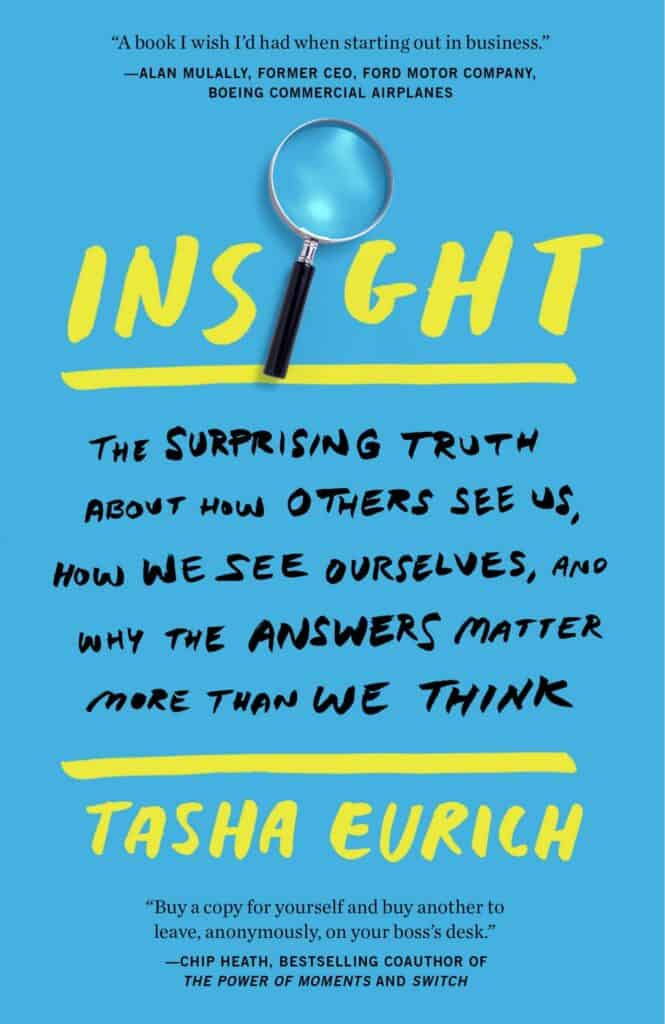Book: Insight
By: Tasha Eurich
Reviewed by: Colleen Jones
The Premise: Organizational psychologist Tasha Eurich has a keen interest in self-awareness, something she believes is the meta-skill of the 21st century. Eurich and her team have done extensive research on the topic and have discovered that while 95% of us believe we are self-aware, in fact, only 10-15% of us actually are. The good news is, it is her belief that we can transform our self-awareness with some focused effort. In Insight, Eurich helps her readers understand that self-awareness is more complex than one truth. Rather it involves both internal self-awareness, understanding our values, patterns and impact on others, as well as external self-awareness – or how others see us.
Throughout this dense read, Eurich normalizes a lack of self-awareness digging into its roadblocks and building blocks, while also sharing what her research has uncovered about the myths and truths of both internal and external self-awareness. Insight is a very practical read, helping readers not only understand the concepts behind self-awareness, but also equipping them with tools and strategies to assess their own awareness, solicit feedback and evolve to a higher level of awareness. In the final section of the book, Eurich shares her take on how leaders can build self-aware teams and organizations.
The Bottomline: As a leadership coach, I spend a lot of time helping leaders gain clarity on how their leadership practices are impacting their effectiveness, and the one consistent theme is that we all have blind spots. I really appreciated Eurich’s effort to normalize this, while also providing accessible and practical tools for helping us gain just a little more insight into what we know about ourselves and how others see us. I think this book is a really helpful resources for anyone who has ever wondered about their own level of self-awareness.
Recommendation: Recommended for anyone who wants to truly understand themselves, learn how they are viewed by others, and come to accept themselves for who they are. While Eurich may use an overabundance of stories and anecdotes to convey the findings of her research, they are worth wading through to get to the many gems throughout the book.




